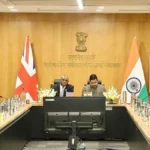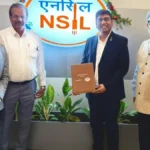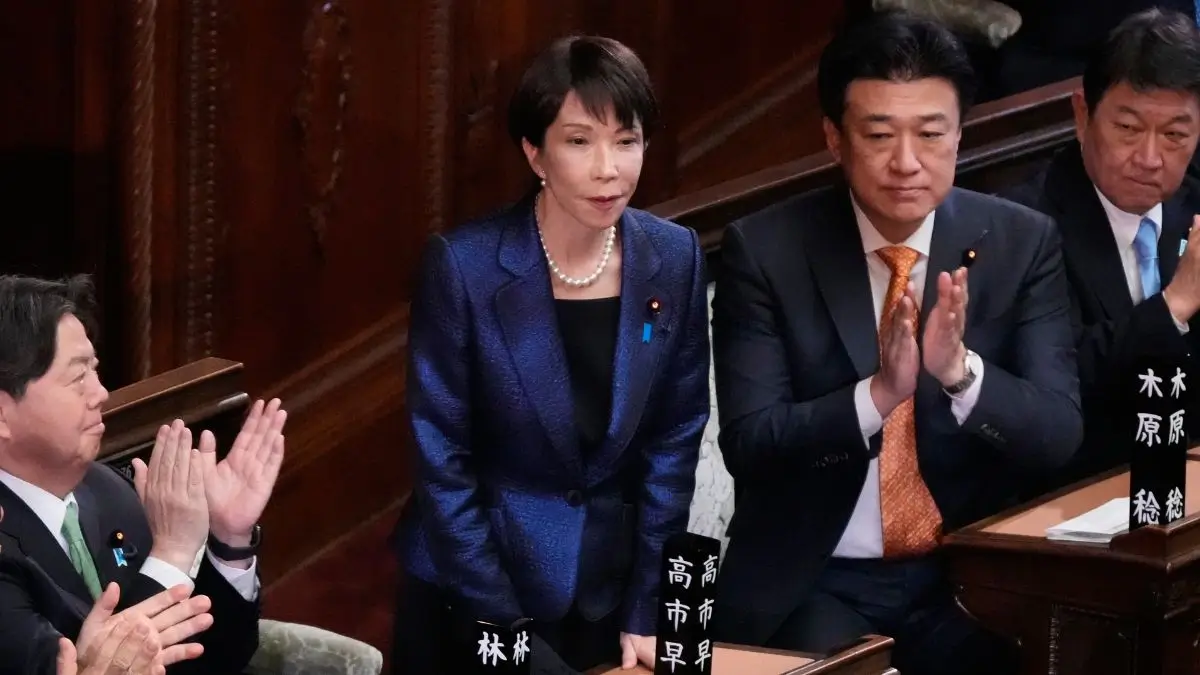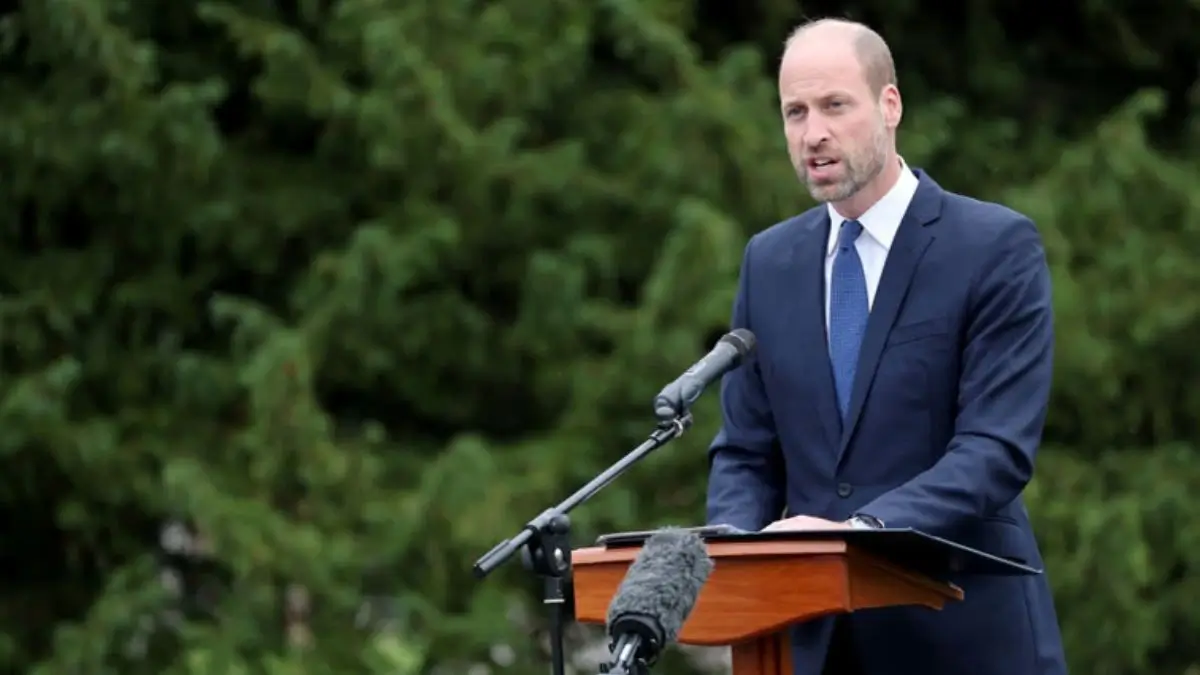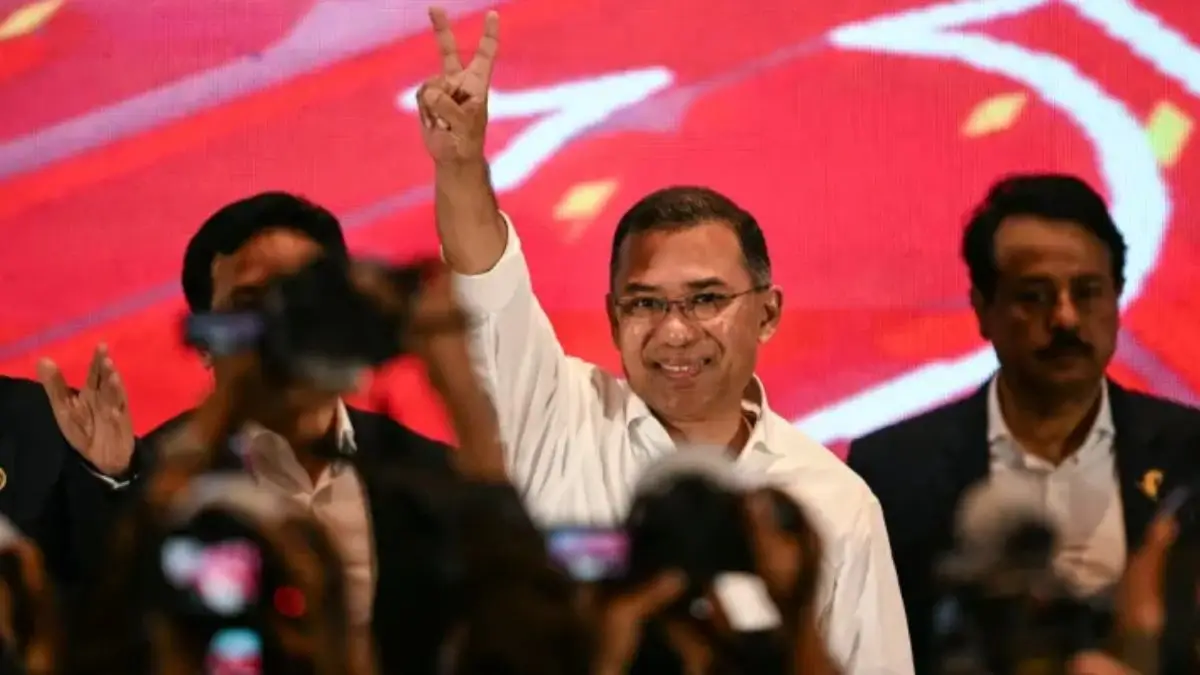Indian Peacekeepers Honoured with Dag Hammarskjold Medal | Significance & India’s Contribution
India’s Permanent Representative to the United Nations, Ambassador Ruchira Kamboj, received the Dag Hammarksjold Medals on behalf of Head Constables Shishupal Singh and Sanwala Ram Vishnoi.
In a heart warming gesture, Indian peacekeepers were posthumously honoured with the prestigious Dag Hammarskjold Medal for their exemplary service and ultimate sacrifice in United Nations (UN) peacekeeping missions. The Dag Hammarskjold Medal, named after the second UN Secretary-General, is awarded to peacekeepers who have lost their lives while serving in the cause of peace. This recognition highlights the selfless dedication and bravery of Indian peacekeepers who have contributed significantly to international peacekeeping efforts.
Indian Peacekeepers’ Sacrifice Recognized
The posthumous honour bestowed upon Indian peacekeepers resonates with their unwavering commitment to upholding peace and stability across the globe. These brave individuals, wearing the blue helmet of the UN, have selflessly risked their lives in conflict zones, working diligently to protect civilians, provide humanitarian aid, and restore peace. Their sacrifices often go unnoticed, but this recognition brings their heroism to the forefront, acknowledging their invaluable contribution to maintaining global peace.
The Significance of Dag Hammarskjold Medal
The Dag Hammarskjold Medal holds immense significance in the realm of peacekeeping. It serves as a symbol of remembrance and gratitude for those who have made the ultimate sacrifice in the pursuit of peace. Established in 1997, the medal acts as a tribute to fallen peacekeepers, honoring their dedication, courage, and unwavering commitment to the noble ideals of the UN. It serves as a poignant reminder of the challenges and risks faced by peacekeepers in their mission to create a more secure and harmonious world.
India’s Contribution to UN Peacekeeping Missions
India has a long-standing history of actively participating in UN peacekeeping missions. The nation has consistently demonstrated its commitment to international peace and security by deploying its armed forces personnel to various conflict-ridden regions. Over the years, Indian peacekeepers have been deployed in some of the most challenging and volatile environments, including countries like Lebanon, Sudan, Congo, and Haiti. Their efforts have been crucial in stabilizing these regions, providing humanitarian assistance, and facilitating post-conflict reconstruction
Honouring the Fallen Heroes
The recognition of Indian peacekeepers with the Dag Hammarskjold Medal serves as a solemn tribute to the fallen heroes who made the ultimate sacrifice. It is a testament to their courage, resilience, and dedication to the cause of peace. This honour not only pays homage to their individual sacrifices but also acknowledges the collective commitment of Indian peacekeepers who serve as a beacon of hope and exemplify the highest standards of professionalism and bravery in their peacekeeping endeavours.

Why this News is Important
Recognizing the Sacrifice of Indian Peacekeepers
The posthumous honour bestowed upon Indian peacekeepers with the Dag Hammarskjold Medal is an important development as it acknowledges and recognizes the sacrifices made by these individuals in the pursuit of peace. It brings attention to their selfless dedication and unwavering commitment to protecting civilians and restoring stability in conflict zones. This recognition helps shed light on the invaluable role played by peacekeepers and the challenges they face in their mission.
Reinforcing India’s Commitment to Global Peacekeeping Efforts
India’s active participation in UN peacekeeping missions and the recognition of its peacekeepers with the Dag Hammarskjold Medal reaffirm the country’s commitment to global peace and security. By deploying its armed forces personnel to conflict-ridden regions, India showcases its willingness to contribute to international peacekeeping efforts and to make a difference in the lives of those affected by conflicts. This news highlights India’s role as a responsible global actor in promoting peace and stability.
Historical Context:
The concept of UN peacekeeping originated in the mid-20th century, as the international community sought ways to prevent conflicts and maintain global peace. The United Nations, established in 1945, became a pivotal organization for resolving disputes and facilitating peace negotiations. As conflicts and civil wars escalated worldwide, the need for international peacekeeping missions became evident.
The Dag Hammarskjold Medal, established in 1997, takes its name from the second UN Secretary-General, Dag Hammarskjold, who served from 1953 until his tragic death in 1961. Hammarskjold was a strong advocate for peace and played a crucial role in developing the principles of UN peacekeeping. The medal serves as a commemoration of his contributions and a tribute to peacekeepers who have made the ultimate sacrifice.
Key Takeaways from “Indian Peacekeepers Honoured Posthumously with Dag Hammarskjold Medal”
| Serial Number | Key Takeaway |
|---|---|
| 1 | Indian peacekeepers were honored posthumously with the Dag Hammarskjold Medal. |
| 2 | The Dag Hammarskjold Medal recognizes peacekeepers who have lost their lives in UN missions. |
| 3 | India has made significant contributions to UN peacekeeping missions over the years. |
| 4 | The recognition highlights the selfless dedication and bravery of Indian peacekeepers. |
| 5 | The Dag Hammarskjold Medal serves as a tribute to fallen peacekeepers and their commitment to global peace. |
Important FAQs for Students from this News
Q: What is the significance of the Dag Hammarskjold Medal?
A: The Dag Hammarskjold Medal is a prestigious recognition awarded to peacekeepers who have lost their lives while serving in UN missions. It serves as a tribute to their sacrifice and dedication to global peacekeeping efforts.
Q: How does India contribute to UN peacekeeping missions?
A: India actively participates in UN peacekeeping missions by deploying its armed forces personnel to conflict-ridden regions. Indian peacekeepers play a vital role in maintaining peace, protecting civilians, and providing humanitarian aid in these areas.
Q: Who was Dag Hammarskjold?
A: Dag Hammarskjold was the second Secretary-General of the United Nations, serving from 1953 until his tragic death in 1961. He was a strong advocate for peace and played a crucial role in developing the principles of UN peacekeeping.
Q: Why is recognizing Indian peacekeepers important?
A: Recognizing Indian peacekeepers is important to acknowledge their selfless dedication and bravery in maintaining global peace. It brings attention to their sacrifices and raises awareness about the challenges faced by peacekeepers in conflict zones.
Q: How does the Dag Hammarskjold Medal contribute to peacekeeping efforts?
A: The Dag Hammarskjold Medal serves as a symbol of remembrance and gratitude for fallen peacekeepers. It reinforces the importance of peacekeeping missions and honors the commitment and courage of those who have made the ultimate sacrifice.
Some Important Current Affairs Links








